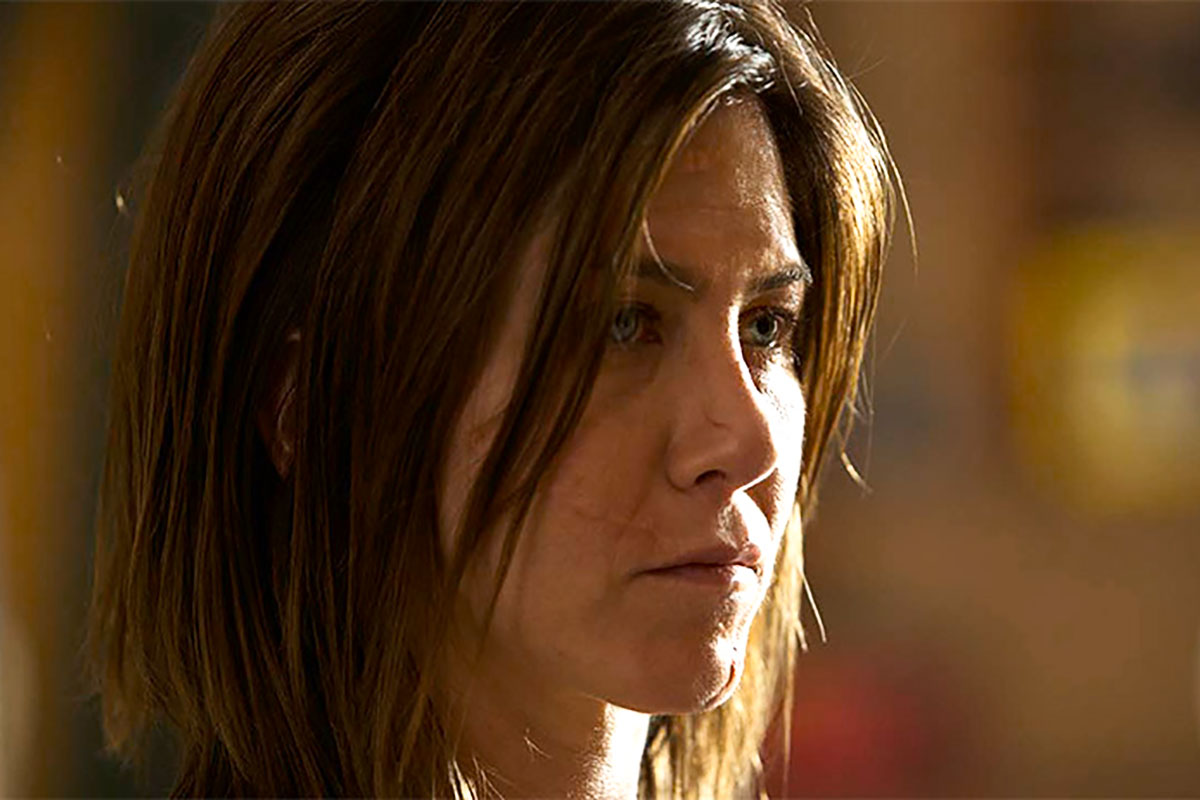With so many great movie reviews posting each week at RogerEbert.com, I’m presenting a series of lists compiling all reviews from 2015 according to star rating. The first of five installments this week focuses on the films that earned two-and-a-half stars. In most cases, this is the lowest recommendation a film can earn, teetering just on the edge of a solid thumbs up, while offering reasons for why the picture—while flawed—is still worth a look. The following group of movies feature acclaimed performances from stars such as Jennifer Aniston (“Cake“), Al Pacino (“The Humbling“) and Arnold Schwarzenegger (“Maggie“); the latest directorial efforts of intriguing filmmakers like André Téchiné (“In the Name of My Daughter“), Andrew Niccol (“Good Kill“) and Rachid Bouchareb (“Two Men in Town“); and numerous foreign festival favorites including “The Duke of Burgundy,” “Saint Laurent” and “The 100-Year-Old Man Who Climbed Out the Window and Disappeared.”
The reviews are presented in alphabetical order and are written by our superb team of critics. They include editors Matt Zoller Seitz and Brian Tallerico; featured critics Glenn Kenny, Susan Wloszczyna, Odie Henderson, Christy Lemire, Sheila O’Malley, Godfrey Cheshire, Simon Abrams and Peter Sobczynski; and contributors Nick Allen, Dan Callahan, Mark Dujsik and Scout Tafoya. Click on the name of each title and you will be directed to the full review.
Please check back every day as we present the films reviewed so far this year that have received three stars, three-and-and-a-half stars, four stars and one to no stars. We will also be re-activating our Letters To The Editor column to make it easier to carry on a discussion in one place, though our comments boards will continue to remain in full operation. Let the great movie discourse continue!

Adult Beginners by Glenn Kenny
The conventions of the contemporary character-driven ethnically monochromatic independent film, […] while not entirely grating, do keep the movie in a generic slough of sorts. If you’re a big booster of any of the lead actors (I’m something of a [Bobby] Cannavale partisan myself), this will be worth your time.

Alex of Venice by Glenn Kenny
It’s so even-tempered that a crankier viewer than myself might accuse it of slathering bland compassion on its characters like California sunshine pouring through a very tastefully-opened aperture.

Amira & Sam by Mark Dujsik
When the eponymous couple is together, “Amira & Sam” is an earnest and considerate examination of two people falling in love, but the movie lacks certainty when handling these characters separately.

Ardor by Glenn Kenny
Gael Garcia Bernal and Alice Braga […] ought to make an exemplary onscreen couple. You’d think. And the pair is certainly not wasted in “Ardor,” a visually sumptuous kind of contemporary eco-Western (sounds more complicated than it is, honest) from Argentine director Pablo Fendrik. But what chemical reaction they try to roil never accelerates to a really satisfactory level.

Backcountry by Glenn Kenny
A very-well executed wilderness thriller [that is] pretty effective but in the end, somehow empty.

Batkid Begins by Nick Allen
Losing its reality to fantasy, “Batkid Begins” has the effect of a vitamin pill more than a feature film’s full meal; it’s concentrated with the good stuff that makes life better, but offers nothing to chew on.

Being Evel by Glenn Kenny
The movie is certainly colorful—this is a guy who, when he had it made, lived VERY large, even if he continued on what seemed like a quest to break every bone in his body multiple times. And it tells, as it keeps reminding us, a very American story. For all that, though, it doesn’t illuminate the guy’s character beyond what’s obvious.

Beltracchi: The Art of the Forgery by Susan Wloszczyna
Too often “The Art of Forgery” turns into a how-to guide, initially interesting but ultimately belabored, with Beltracchi meticulously deconstructing the methods he employed to pass off his new art as old, from reusing period-correct frames and canvases bought at flea markets to tucking pieces of dust and dirt into the back of his paintings. It’s like watching a magician reveal his secrets, which is usually less fun than watching him pull a rabbit out of his hat.

Black or White by Matt Zoller Seitz
It’s often painful, and not in a good way; it’s painful because of the roads it doesn’t explore, the shortcuts it takes, and the special pleading it can’t stop itself from indulging in.

Bloodsucking Bastards by Brian Tallerico
Call this one “Bram Stoker’s The Office,” or “George A. Romero’s Office Space.” “Bloodsucking Bastards” doesn’t quite hit all of the marks it needed to in order to wholeheartedly recommend, but it is often surprisingly clever and funnier than most horror-comedies of the last two decades.

Bravetown by Godfrey Cheshire
A film for teenagers, especially those with a taste for teen-movie clichés put across with plush production values and a complement of high-energy dance numbers. Older audiences are likely to find the film less amusing than risible.

Cake by Susan Wloszczyna
You won’t be able to take her eyes off of [Jennifer Aniston], which is a good thing since it will take a while to notice that the film surrounding her starts to go soft around the edges until it collapses all together. Like an underdone, well, cake.

The Casual Vacancy by Brian Tallerico
We can’t avoid death or government, even in small-town England. They are inevitabilities and the best parts of “The Casual Vacancy” reveal how they intertwine into everyday life in ways we may not fully understand until we gain the clear vision of hindsight.
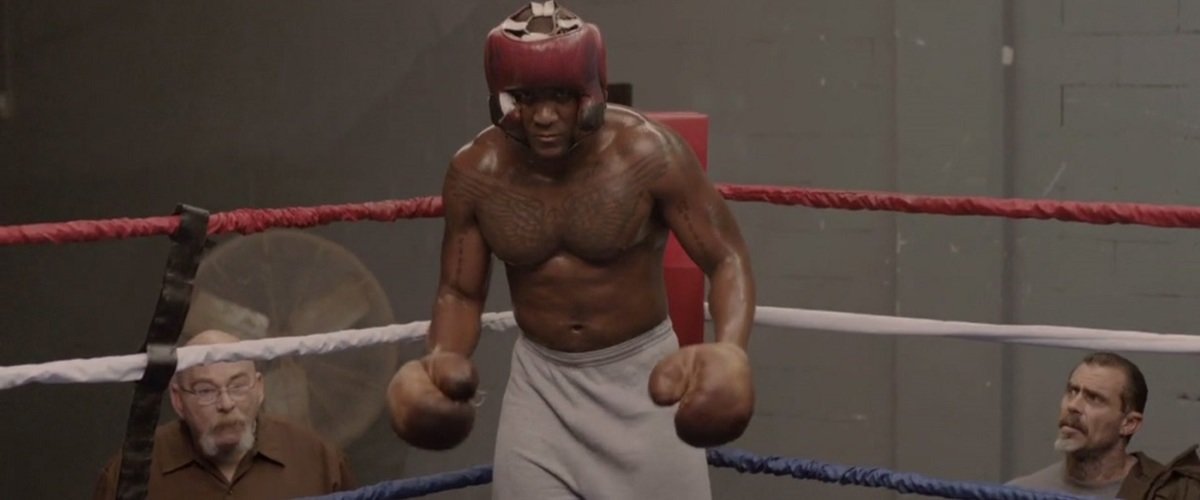
Champs by Odie Henderson
These are potentially fascinating and provable notions, yet “Champs” never fully coheres around either of them despite having details that would facilitate a more tightly executed treatise. It’s like a thesis whose next draft would be destined for greatness.

A Christmas Horror Story by Peter Sobczynski
Considering that the film is the product of three separate directors and four screenwriters, this is a fairly ambitious approach to take and the end result is surprisingly coherent in the way that it brings the various stories together. The problem is that by doing it this way, the film is constantly undercutting its own ability to generate any real suspense.

Deathgasm by Brian Tallerico
As is often the case with films that crib from the horror-comedy masters like Peter Jackson, the balance is tougher to pull off than it first appears, and “Deathgasm” gets a bit numbing and repetitive before it’s over, but there’s enough fun, clever material here for metalheads and horror fans to like until Sean Byrne’s superior “The Devil Candy” lands sometime next year.

Dope by Odie Henderson
“Dope” opts instead for Webster’s take on its title, defining it as slang for a stupid person, drugs and something that’s cool. To “Dope”’s credit, it presents us with credible examples of all three; to its detriment, “Dope” alternates between being shockingly tone-deaf and surprisingly on-point.

Drunk Stoned Brilliant Dead: The Story of the National Lampoon by Glenn Kenny
It’s an engaging and entertaining film, filled with funny anecdotes expertly related. […] As watchable as the movie is, it’s an almost relentlessly incurious history.

The Duke of Burgundy by Glenn Kenny
A daring, atmosphere-soaked piece of kink hypnotherapy that pays explicit homage to the films of [Jess] Franco, down to the casting of former Franco regular, formidable femme Monica Swinn, in a sinister role.

Effie Gray by Dan Callahan
A handsomely designed period film with a screenplay by Emma Thompson that seeks to dramatize [art critic John] Ruskin’s unhappy marriage to a younger woman as a kind of feminist fairy tale.

Everest by Glenn Kenny
I’ve not read [Jon] Krakauer’s book, but perhaps I should. Coming out of this movie, the story remained upsettingly senseless to me, and an inapt one for a movie that. Despite its attempts at empathy, “Everest” often plays the cinematic thrill ride card.
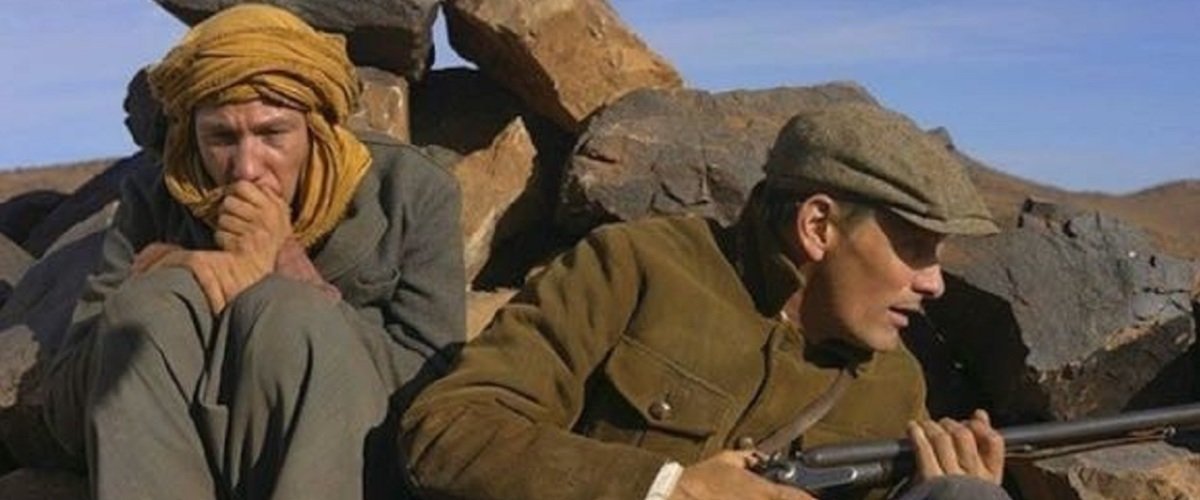
Far from Men by Glenn Kenny
In addition to muffing the dénouement of the story on which it’s based, “Far From Men” is also the kind of movie in which sobriety and a stalwart sense of seriousness yield more inertia than profundity.

The Film Critic by Sheila O’Malley
“The Film Critic” is an extended spoof more than anything else (it may have worked better as a short film), and its targets are pretty shallow, but it still includes many entertaining and insightful elements.

Fresh Dressed by Odie Henderson
It primed me for a deeper discussion on how “clothes make the man,” then disappointed me by devolving into a huge commercial for fashion designers past and present.

Good Kill by Matt Zoller Seitz
“Good Kill” is an intelligent but not terribly effective drama. And its discussion of military ethics, especially with regard to what it means to be able to kill people without physical consequences, is promising, but it does not go far enough.

Hellions by Simon Abrams
There is […] nothing new in “Hellions” that you can’t get already in earlier, more ambitious horror films. But [Bruce] McDonald delivers an effective thrice-told tale, and he does it with enough avant garde flair to show viewers that temper their expectations a good time.

The Human Experiment by Godfrey Cheshire
Its subject, the threat of manufactured chemicals in the environment, is a sprawling, amorphous one. And though Sean Penn executive-produced the film and voices its spare narration, the doc has a very generic tone, so much so that it might seem to belong on TV rather than in theaters.

The Humbling by Christy Lemire
Al Pacino gives a refreshingly quiet and understated performance with poignant moments of vulnerability. It is the most consistent factor in a film that is frustratingly inconsistent.

Insurgent by Susan Wloszczyna
That “Insurgent” and its predecessor prove to be at least halfway decent diversions is primarily thanks to leading lady [Shailene] Woodley’s ability to fully commit to her character’s internal journey as she eventually evolves into a self-sacrificing savior figure after being riddled with guilt and grief while summoning the sympathies of the audience.

In the Name of My Daughter by Odie Henderson
Those looking for a courtroom drama or the emotional tugging that might result from a mother’s 30-year fight to get justice for her daughter will find little to chew on here.

I Touched All Your Stuff by Mark Dujsik
One gets the sense that the filmmakers feel slighted by their subject, and “I Touched All Your Stuff” is an attempt to make us feel that sting of disappointment. In a way, it’s effective. The movie is disappointing.

The Keeping Room by Susan Wloszczyna
“The Keeping Room” does exceed “The Beguiled” with its progressive gender politics and morose minimalist approach. But when it comes to presenting a more watchable story, the older film would be the one that stops you from clicking to another channel if it pops up on TV.

The Kidnapping of Michel Houellebecq by Glenn Kenny
Let’s just say that this is pretty much the opposite of a contemporary American comedy: rather than broad, “The Kidnapping of Michel Houllebecq” is an exemplary example of narrow.
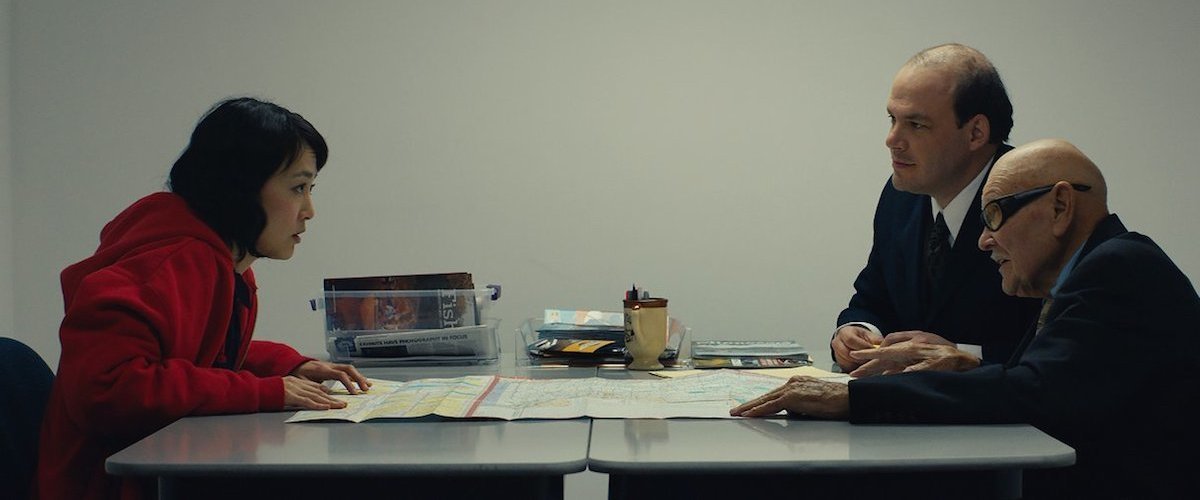
Kumiko, the Treasure Hunter by Glenn Kenny
It plays out as a deliberate, somber character study that semi-eerily morphs into comedy of middle-American manners and then into something else again.
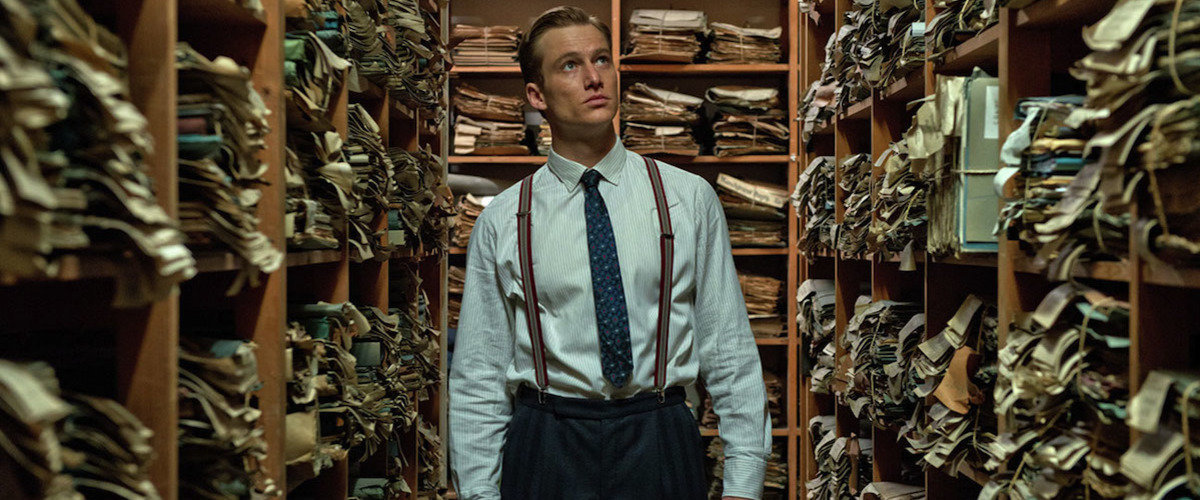
Labyrinth of Lies by Glenn Kenny
There’s a compelling cinematic story here, perhaps, but [Giulio] Ricciarelli’s movie is too diffused and scattered and, especially in its first hour, too reliant on commonplaces.

The Last 5 Years by Susan Wloszczyna
It offers enough gooey goodness at its center to take some of the bitter edge off its battered take on the harsh realities of romantic commitment. Still, as a date-night viewing option for this weekend, this nearly all-sung autopsy of a failed marriage would pretty much qualify as a Valentine’s Day massacre.

A LEGO Brickumentary by Peter Sobczynski
One might hope that “A LEGO Brickumentary” [will] explore the subject at hand with a similarly off-kilter approach but that is not the case with what is essentially a 90-minute infomercial for a product that hardly needs to sell itself anymore at this point.

Loitering with Intent by Susan Wloszczyna
It starts off promisingly with intriguing characters and a lush summer home setting but ends up as just another reverie about what is truly important—basically, a combination of love, friendship, loyalty and being honest with yourself. And drinking. Lots of drinking.

Maggie by Odie Henderson
The actors are game for the ultimate heart of darkness of its scenario, that of a father possibly having to kill his own daughter, yet “Maggie” prefers to hide behind the heavy-handed symbolism of its visuals rather than deal with its tragedy head-on.

Meru by Brian Tallerico
Their story is undeniably interesting. However, and this is the tricky part about reviewing documentaries, the movie about that story is flawed. A bit too much time is spent in admiration and hero worship over the indefatigable will of these men, when it is the footage on that mountainside that matters. It’s a story that speaks for itself, and so the emphasis on talking heads explaining it to us is dispiriting.

Misery Loves Comedy by Matt Zoller Seitz
While genial and never dull, the film is all over the place, a classic example of trying to do and say too much.

Mr. Holmes by Susan Wloszczyna
A certain placidity seeps into too much of the film, even if [Ian] McKellen is consistently enjoyable […] But whatever tension exists onscreen primarily is in Sherlock’s mind. And, in this movie at least, it is like watching a door oh so slowly being shut.

Old Fashioned by Glenn Kenny
It’s incredibly rare to see an American movie with a Christian perspective that’s more invested in philosophizing and empathizing than in eschatological pandering, and for that alone “Old Fashioned” deserves commendation.

The 100-Year-Old Man Who Climbed Out the Window and Disappeared by Glenn Kenny
This movie, as it happens, is a comedy, but it’s a frequently grisly one, and one that makes rollicking fun of a lot of dark Swedish preoccupations.
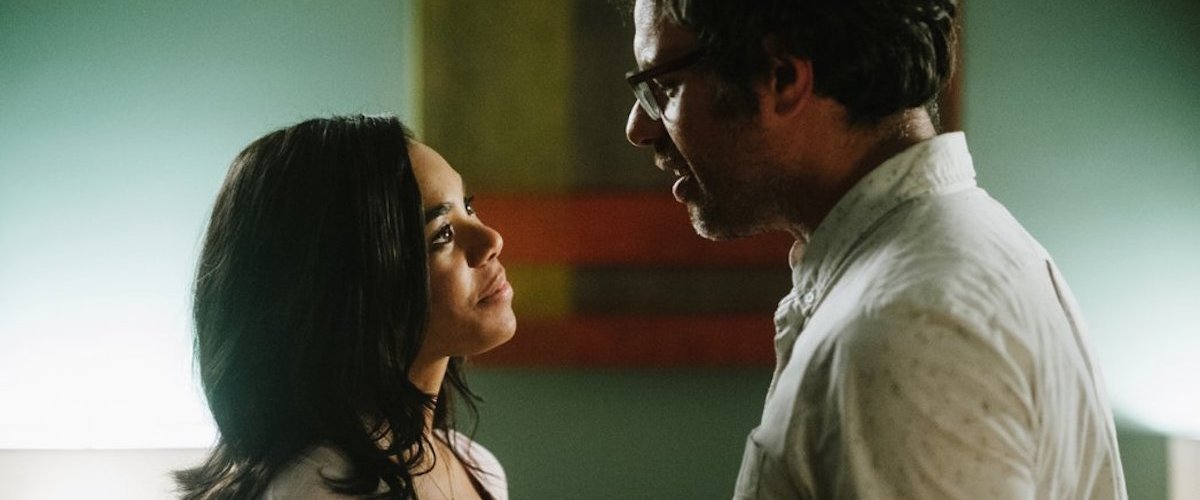
People Places Things by Odie Henderson
Writer-director James C. Strouse builds a lot up a lot of goodwill, even when his characters are intolerable, because he stays rooted in a recognizable, relatable reality. All that goodwill gets squandered with one of the limpest climaxes and endings I’ve seen in years.

Pitch Perfect 2 by Susan Wloszczyna
For every moment of cleverness (among them, the treatment of the Universal Studios fanfare and this Fat Amy aside: “You’re the most talented person I know, and I’ve met three of the Wiggles—intimately”), there seems to be a half-dozen attempts at humor that strain for laughs.

Redeemer by Mark Dujsik
The first climax, which closes the drug deal portion of the plot, sidesteps the hand-to-hand fighting for a sequence of bloody gunplay. It’s less involving, and indeed, the fights themselves become a bit repetitive. These wouldn’t matter as much if “Redeemer” had a distinct personality beyond the occasional flash from the villains.

The Rewrite by Glenn Kenny
As predictable as it is, and as sometimes cloying as a few of the movie-insider jokes can get, […] this movie earned my “almost good” rating of two and a half stars on account of the indeed plucky and winning work of the cast, which also includes J.K. Simmons and Chris Elliott as campus “types.”

Roar by Simon Abrams
“Roar” may often feel like a bizarre Swiss Family Robinson adventure, but the real reason you should go see it is its surplus of lions, and tigers, and cheetahs (oh my!).
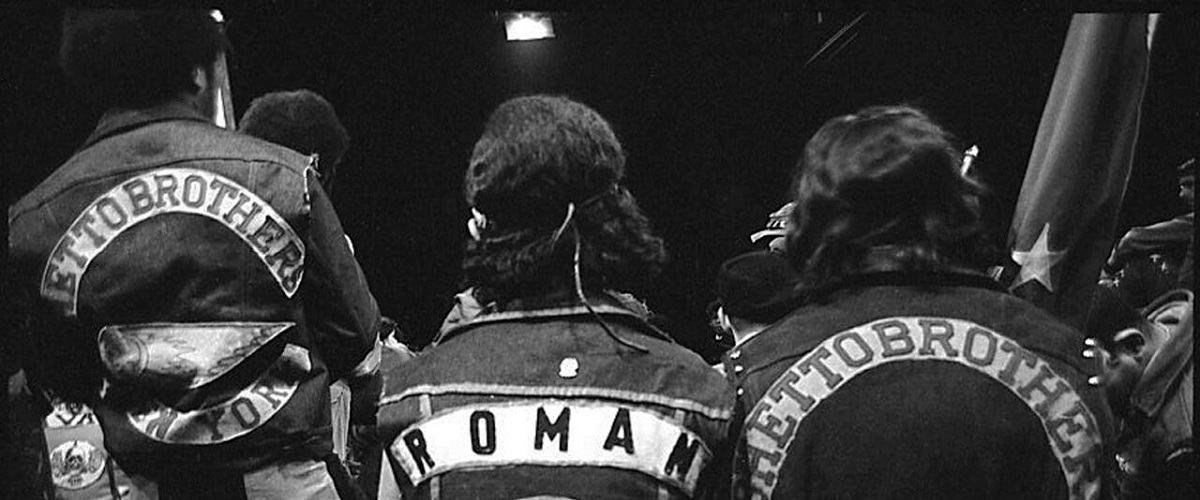
Rubble Kings by Simon Abrams
That myopic focus is sometimes frustrating since [Shan] Nicholson never presses his subjects hard enough to get them to answer follow-up questions. But “Rubble Kings” is an exciting glimpse at a subculture that most urbanites only know exists thanks to NYC-sploitation gems like “The Warriors.”

Saint Laurent by Susan Wloszczyna
Ultimately hollow as director Bertrand Bonello keeps his subject somewhat emotionally at bay, the movie is also at times quite addictive—much like Opium, the controversial name of Saint Laurent’s famous scent.

Samba by Sheila O’Malley
A bizarre, uneven, and strangely charming movie about the bureaucratic nightmare that is illegal immigration in France […] The “romance” and “comedy” of the genre are present because [Omar] Sy brings them to life. He almost singlehandedly justifies the film’s existence, and that is something only a star can do.

7 Chinese Brothers by Matt Zoller Seitz
[Jason] Schwartzman’s intelligent eyes and deadpan reactions make him ideal for playing a cynical heel in a William Holden-Fred MacMurray vein, even as his slight frame and high tenor voice guarantee that he can’t play guys as tough and fearsome as those actors often did, except as a joke. There’s something genuinely special about him. That specialness goes a long way towards making this slightly-better-than-OK movie feel special, too.

Seventh Son by Glenn Kenny
I found himself rather enjoying more than a few portions of the movie, which indeed features a plethora of computer-animated monsters that at least seem to have been inspired by the work of such old-school tech masters as Ray Harryhausen.

She’s Funny That Way by Glenn Kenny
Too many times the characters in this movie sprint across the line separating quirky charm from know-somethingish affectation, and then stay on the wrong side of it. And this erodes the sunny farcical tone to which “She’s Funny That Way” aspires. It’s as if somewhere along the way this wannabe champagne got spiked with eager-to-please bennies.

Son of a Gun by Scout Tafoya
There’s a horror and truth that comes from staring into the abyss, and “Son of a Gun“ could stand to learn a little more from Michael Mann about how to convey those cinematically.

The SpongeBob Movie: Sponge Out of Water by Christy Lemire
Zany and zippy as you’d expect, “The SpongeBob Movie: Sponge Out of Water” remains true to the surrealism of its animated television roots. But it also tries to force a live-action element which isn’t as comfortable a fit as a certain pair of symmetrical trousers.
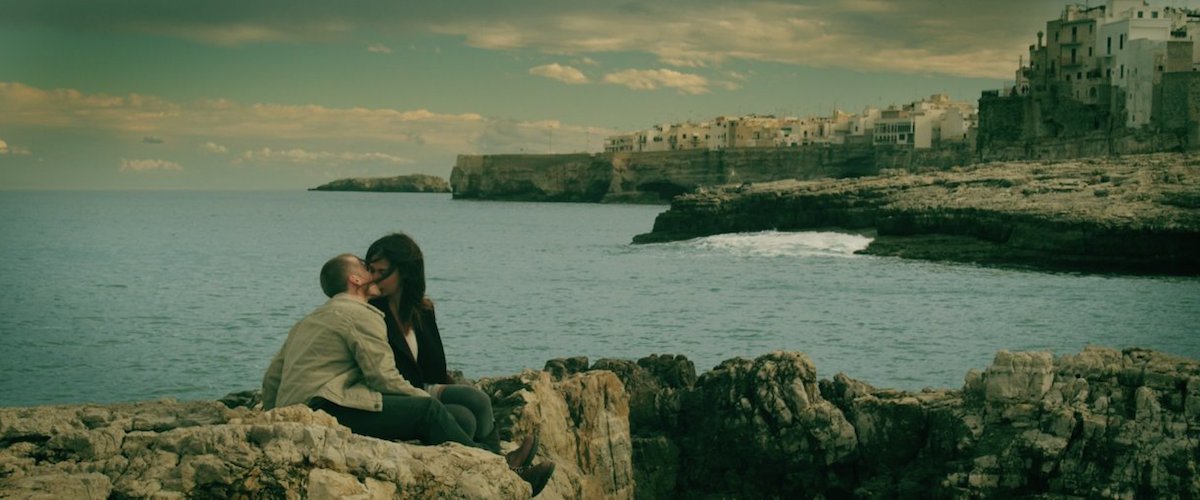
Spring by Simon Abrams
An ambitious and often enchanting genre hybrid, is at its best when it’s a straight-forward romance. […] “Spring” has a lot to offer, particularly its relaxed ambiance, and seductively assured pacing.

Sunshine Superman by Glenn Kenny
The subject matter increasingly suggests a kind of cross between “Man On Wire” and “Grizzly Man,” but unlike “Grizzly Man” director Werner Herzog, director [Marah] Strauch has little interrogative spirit.

Taxi by Glenn Kenny
[Jafar] Panahi’s latest act of defiance is entirely commendable on a number of levels, but I regret to say that from my own perspective, “Taxi” is the weakest of the films he’s made since he was enjoined from making them.

That Sugar Film by Susan Wloszczyna
[Damon] Gameau himself also shows a penchant for walking about in neon yellow or orange underpants during his medical check-ups. It’s all very cute, but if you want sugar-drenched whimsy, why not indulge in “Willy Wonka & the Chocolate Factory” instead?

Three Night Stand by Sheila O’Malley
“Three Night Stand” is refreshingly unsentimental in a lot of respects, and gimlet-eyed about romantic relationships, rare in the genre, but the film lacks a strong center.

Tom at the Farm by Sheila O’Malley
This is [Xavier] Dolan’s first attempt at genre, and while there is much to admire here (mainly the visuals and the score, both stunning), Dolan’s interests lie in the strange undercurrents of sado-masochism between the two main characters, and it’s a through-line that deserves more attention. That through-line could have carried the entire movie if Dolan had let go of being faithful to the original.

Treading Water by Sheila O’Malley
The movie doesn’t quite hold together at times, and some of the darker elements (like what it feels like to be shamed and shunned at every moment of your life) are soft-pedaled. But it has a strange charm nonetheless.

Two Men in Town by Glenn Kenny
The perspective reminded me of a similar death-seen-from-a-great distance scene, in Abderrahmane Sissako’s extraordinary 2014 “Timbuktu,” but where Sissako’s scene showed a quiet, implacable assurance, Bouchareb’s presentation has a slight ring of manipulative dynamics, and overdetermination.
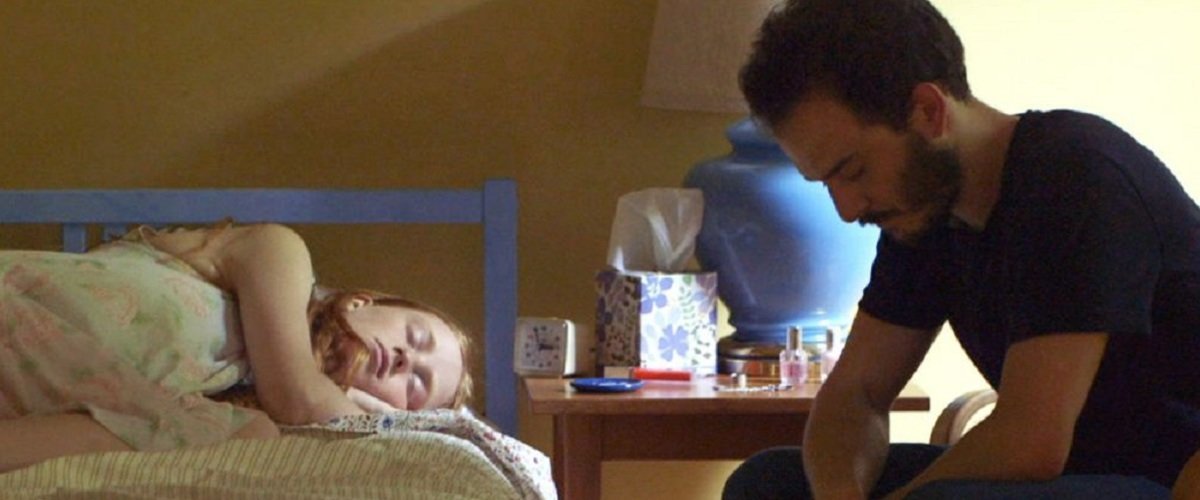
Uncertain Terms by Nick Allen
“Uncertain Terms” finds some substance within its ideology of evaporated ambitions, though there’s plenty of empty space in which the film is still able to limit itself.

The Walk by Matt Zoller Seitz
In terms of sheer directorial craft, “The Walk” is masterful, but as storytelling, it’s a near-disaster. That’s too bad, because nobody does visceral like Robert Zemeckis. Even in his less-than-great films, there are always two or three sequences that dazzle the viewer […] The final half-hour of “The Walk” is on that level.

A Walk in the Woods by Susan Wloszczyna
One wonders what might have been if [Paul] Newman were still around. Oddly enough, there is a scene that briefly summons memories of Butch and Sundance when the guys are trapped on a ledge and peer over a harrowing incline to see a body of water below. I kept hoping they would jump in together. But it was not to be.

White Rabbit by Peter Sobczynski
One of the bleaker films that you will see anytime soon and while it may not be entirely successful as a whole, it contains enough moments of real power to make you wish that it worked better than it actually does.

Wild Card by Odie Henderson
His fight scenes have their predictable, violent payoffs, but his rambling monologues are unexpectedly, gloriously entertaining. This film’s tagline should be “Come for the stabbing, stay for the gabbing!”

Wild Horses by Godfrey Cheshire
Robert Duvall delivers a complex, ambitious genre piece that combines family drama and murder mystery, set in the south Texas ranch country. While the mix doesn’t always cohere, the film boasts moments and scenes that rank with Duvall’s best work.

The Wolfpack by Brian Tallerico
It’s clear from Moselle’s verité style, in which she doesn’t often seem to ask follow-up questions but let the boys come to their own emotional conclusions, that she was very concerned about these young men, as anybody would be. But the arms-length approach can be frustrating. There are times when the Angulos seem to be directing “The Wolfpack” more than Moselle, and it’s an incredible story that would have benefited from a surer hand.

Woman in Gold by Susan Wloszczyna
Gilding the script, which strings together multiple story strands surrounding Maria’s eventual landmark legal case that would allow reparation to Jewish descendants, is a mother lode of platitudinous sentiment that will likely prove pleasing to the masses but will irk those more cynically inclined.

The World Made Straight by Matt Zoller Seitz
The movie never entirely rises to the height of its ambitions, though: there are moments when you can practically hear it straining to impart significance to what is, in the end, a fairly standard sensitive-young-criminal-in-over-his-head story.

The Wrecking Crew by Christy Lemire
“The Wrecking Crew” is mostly about uplift, however—almost monotonously so. It aims to enlighten and inspire by shining a spotlight on the folks who toiled in the background for too long.

A Year in Champagne by Glenn Kenny
Many other seeming mysteries of process and designation, including the secret of how those bubbles come to animate a beverage that is not, in fact, carbonated, are provided in this brisk, entertaining film.

The Young and Prodigious T.S. Spivet by Simon Abrams
“T.S. Spivet” is a messy, warm comedy about grief, family and imagination. It’s also ironically about being seen and rarely heard. But while some of the film’s wide emotional turns—from over-caffeinated road movie to magically-realistic melodrama and back again—are not handled with care, the film is more than the sum of its unequal parts.

Z for Zachariah by Matt Zoller Seitz
“Z for Zachariah” is ultimately too dramatically slight and brief for its ambitions, despite its sometimes labored myth-making script and visuals. And it’s ultimately unwilling to truly commit to the idea of life during the end of the world as we know it.
Click here to purchase Roger’s books, his DVD commentaries, and his selections in the Great Movies series available on DVD.
